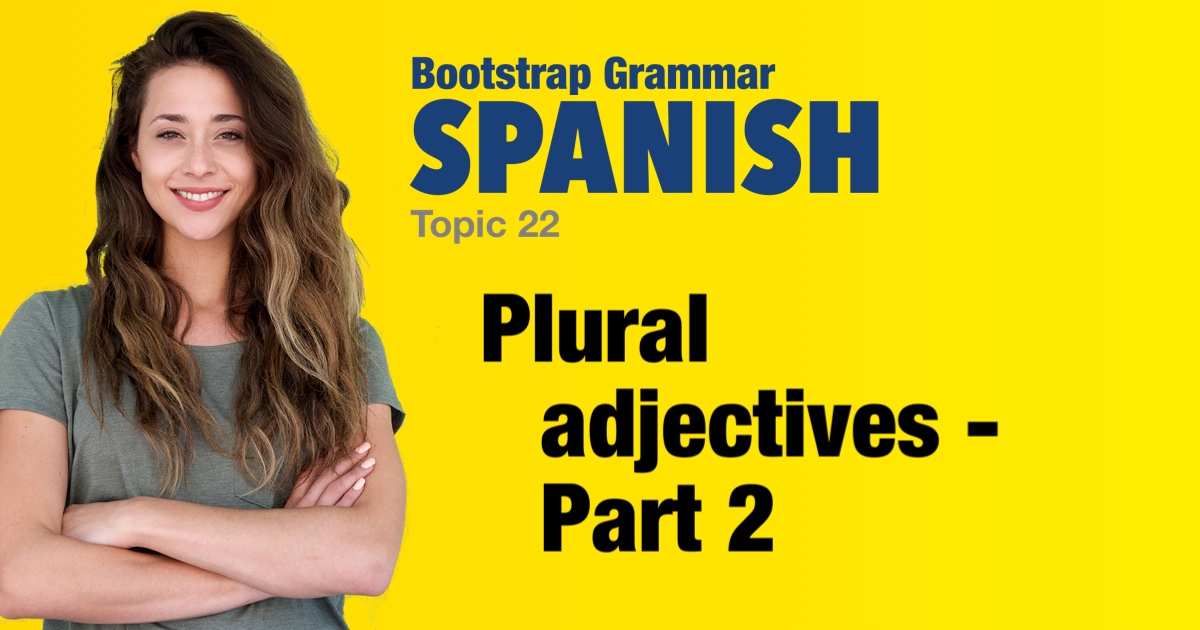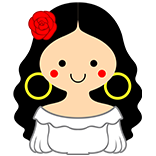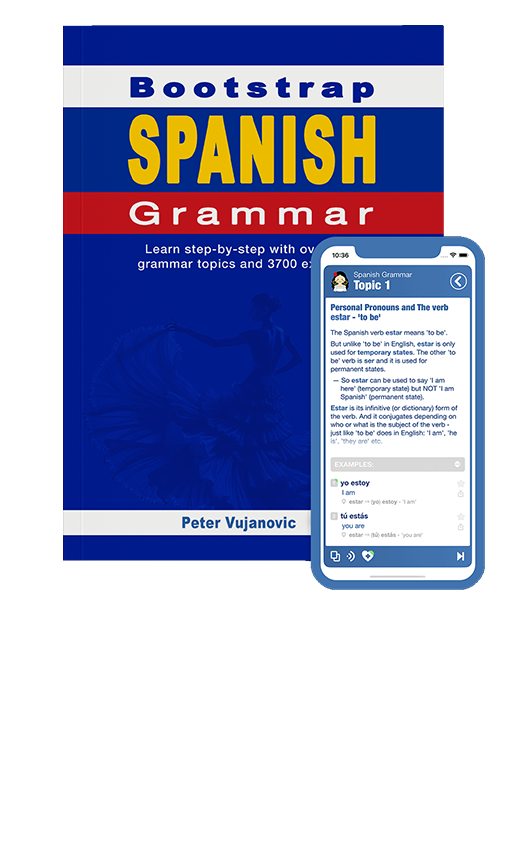Spanish grammar - Plural adjectives - Part 2 |
|||
|
|||
If the singular masculine form of the adjective does not end with -o then forming the plural masculine and feminine forms is the same: • Add an -s if it ends in a vowel, or -es if it ends in a consonant. • Add an -es if it ends in a consonant. • If it ends in -z: change the -z to -ces. |
| Examples: | |
|
Los coches son grandes.
The cars are big.
|
|
|
Las casas son grandes.
The houses are big. |
|
|
Los niños son felices.
The boys are happy.
|
|
|
Las niñas son felices.
The girls are happy. |
|
|
Los chicos son jóvenes.
The boys are young.
|
|
|
Las chicas son jóvenes.
The girls are young. |
|
|
Los exámenes son fáciles.
The exams are easy.
|
|
|
Las tareas son fáciles.
The tasks are easy.
|
|
|
Los problemas son difíciles.
The problems are difficult.
|
|
|
Las situaciones son difíciles.
The situations are difficult.
|
|
 |
|



